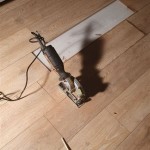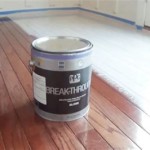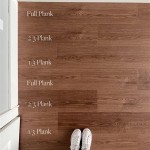Should You Seal Subfloor?
When it comes to installing flooring, there are many factors to consider, one of which is whether or not to seal the subfloor. Sealing the subfloor can help to protect it from moisture damage, but it can also be a time-consuming and expensive process. So, how do you know if sealing your subfloor is the right decision for you?
There are a few things to consider when making this decision. First, what type of flooring are you installing? Some types of flooring, such as hardwood and laminate, require a sealed subfloor in order to be properly installed. Other types of flooring, such as carpet and vinyl, do not require a sealed subfloor.
Second, what is the condition of your subfloor? If your subfloor is in good condition, with no signs of moisture damage or rot, you may not need to seal it. However, if your subfloor is damaged or shows signs of moisture, sealing it is a good idea to protect it from further damage.
Third, what is the climate in your area? If you live in a humid climate, sealing your subfloor is a good idea to protect it from moisture damage. However, if you live in a dry climate, sealing your subfloor may not be necessary.
Ultimately, the decision of whether or not to seal your subfloor is a personal one. However, by considering the factors above, you can make an informed decision that is right for your home.
Benefits of Sealing Subfloor
There are several benefits to sealing your subfloor, including:
- Moisture protection: Sealing your subfloor can help to protect it from moisture damage. This is especially important in humid climates or if you have a history of moisture problems in your home.
- Mold and mildew resistance: Sealing your subfloor can help to prevent mold and mildew growth. This is especially important in areas that are prone to moisture or have poor ventilation.
- Extended flooring life: Sealing your subfloor can help to extend the life of your flooring. This is because a sealed subfloor is less likely to be damaged by moisture or pests.
- Improved indoor air quality: Sealing your subfloor can help to improve indoor air quality by reducing the amount of dust and allergens that are released into the air.
Considerations Before Sealing Subfloor
Before you decide to seal your subfloor, there are a few considerations to keep in mind:
- Cost: Sealing your subfloor can be a time-consuming and expensive process. The cost of sealing your subfloor will vary depending on the size of your home and the type of sealant you use.
- Time: Sealing your subfloor can take several days to complete. This is because you need to allow the sealant to dry completely before you can install your flooring.
- Odor: Some sealants can emit a strong odor. This odor can be harmful to your health if you are exposed to it for long periods of time. Be sure to ventilate your home well when you are applying the sealant.

How To Repair Seal Your Subfloor Why You Might Need

How To Repair Seal Your Subfloor Why You Might Need

Seal Bond Subfloor Sealant

How To Waterproof A Floor The Home

Subflooring Secrets To A Quiet Floor Subfloor Construction

Seal Bond Subfloor Sealant

Vlog 69 Sealing The Subfloor
Subfloor Perimeter Expansion Gap Diy Home Improvement Forum

Repairing And Waterproofing Basement Subfloor Sani Tred

Diy Plywood Floors Part 2 How To Stain And Seal
See Also







